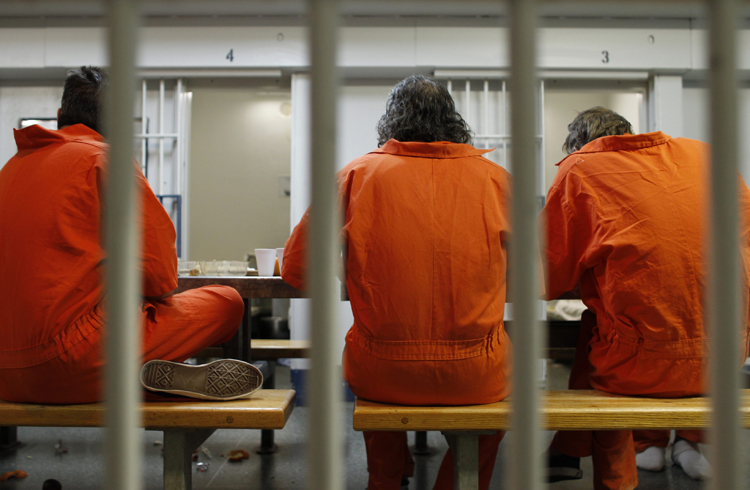A hunger strike by immigration detainees jailed in Lindsay, Ont. has passed the two-week mark, but only two inmates are participating out of an original 55, corrections officials say.

The statement could not be independently verified.
Supporters said that 68 detainees were participating in the hunger strike when it began on July 11. Due to lockdowns, however, they no longer have their own estimate of how many are involved.
“One thing with increased lockdowns is difficulty getting information in and out,” explains immigration detention activist Tings Chak.
An independent count would depend on reports from four different parts of the detainees’ wing at Central East Correctional Centre, which are designed not to be in contact with each other.
The detainees are demanding an end to the practice of putting immigration detainees, many of whom have no criminal background, in maximum-security jails. Their supporters argue for a 90-day cap on detentions, which they say would comply with international law.

Public safety minister Ralph Goodale told a Senate committee that he is looking to change Canada’s immigration detention practices.

Get breaking National news
They are also asking for a meeting with federal public safety minister Ralph Goodale, which they say his office has refused. Spokesperson Dan Brien confirmed Goodale had not met with the detainees, but would not say why.
One key organizer was deported Monday, Chak says.
“Others have been threatened with transfer to other institutions. Some are being threatened with segregation.”
“The Ministry has no plans to transfer out any detainees from CECC as some reports have indicated, nor would (it) transfer inmates into segregation solely because they are peacefully protesting their confinement,” provincial corrections spokesman Greg Flood wrote in an e-mail.
READ MORE: Cold, ill-fed, terrified: Ex-detainee recalls Lindsay jail ordeal
Jail inmates are normally locked in their cells for meals, and food is brought to them. If it is refused, the server, usually another inmate, moves on.
“One thing we’ve been seeing is that the guards will not allow the detainees to be servers, and the guards are actually placing it inside the cells, so the hunger strikers have to stare at their food,” Chak said.
A long fast throws the body into an escalating crisis, explains Peterborough, Ont. doctor Michelle Fraser.
“In the first stages of a hunger strike, the body is using its emergency stores of sugar,” she says. “After you get past day 3 or day 4, it switches over to fat and protein, and the body essentially starts to eat itself.”
“When someone is using up fat and muscle, they start to feel awful – headaches, lightheadedness, chills, palpitations. Mentally they become quite fatigued – it’s difficult to think clearly, to make good decisions.”
Ending a significant fast should be done under medical supervision, she says.
At any given time, between 200 and 250 immigration detainees are held in Ontario jails. Some have criminal backgrounds, while others don’t. The Canada Border Services Agency pays Ontario for the jail space they use.
In June, Goodale announced plans to largely phase out the practice of holding immigration detainees in provincial jails.
Reg Williams, who directed Toronto-area immigration enforcement for the Canada Border Services Agency before his retirement, opposes a 90-day limit on detention.
“If there was a ceiling of 90 days, the balance of power shifts significantly against Canada and it’s ability to remove inadmissible persons. This is because there will now be tremendous incentive for persons facing deportation to simply drag things out until they reach the ‘magic number’ of 90 days.”
Williams concedes that there should be a limit in cases where it isn’t possible to deport people, even if they co-operate with the deportation process. This was the case with Abdurahman Hassan, a Somali detainee at CECC who died last summer on the third anniversary of entering immigration detention.
Hassan’s detention was in an unresolvable loop, since he couldn’t be deported to Somalia and the Immigration and Refugee Board refused to release him.
READ MORE: Inquest into Abdurahman Hassan’s mysterious death may wait until 2018, coroner says
“I can imagine it would be very challenging, emotionally and psychologically, to be going without food in a situation where you don’t have much control in general over your life,” Fraser says.
“If you live in a maximum-security jail where your movements are restricted, your hours of sleep are restricted, where your access to the natural environment is restricted to 20 minutes outside in a concrete enclosure once a day, to then also to be going without food would be extraordinarily difficult.”




Comments